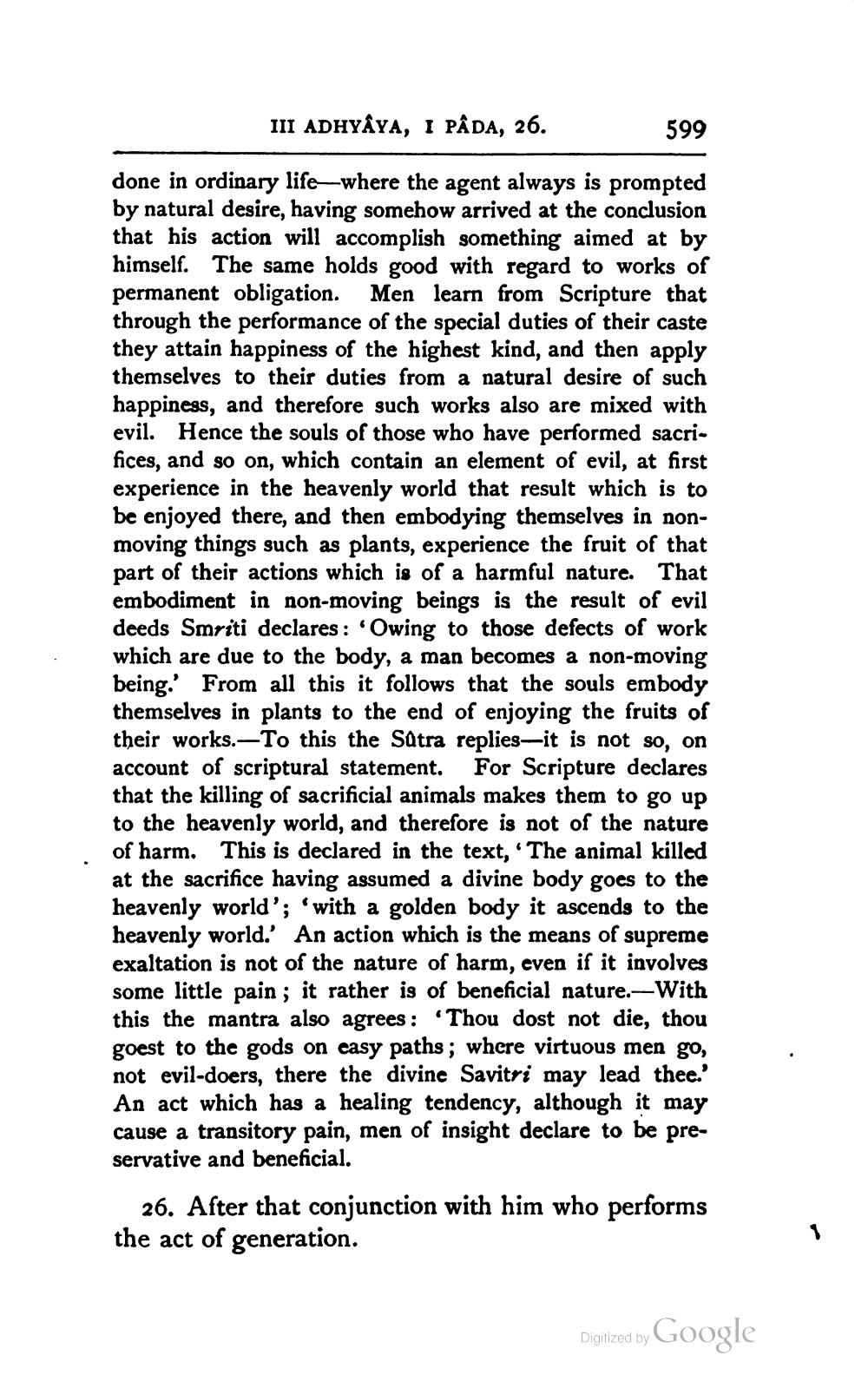________________
III ADHYAYA, I PÂDA, 26.
599
done in ordinary life—where the agent always is prompted by natural desire, having somehow arrived at the conclusion that his action will accomplish something aimed at by himself. The same holds good with regard to works of permanent obligation. Men learn from Scripture that through the performance of the special duties of their caste they attain happiness of the highest kind, and then apply themselves to their duties from a natural desire of such happiness, and therefore such works also are mixed with evil. Hence the souls of those who have performed sacrifices, and so on, which contain an element of evil, at first experience in the heavenly world that result which is to be enjoyed there, and then embodying themselves in nonmoving things such as plants, experience the fruit of that part of their actions which is of a harmful nature. That embodiment in non-moving beings is the result of evil deeds Smriti declares : Owing to those defects of work which are due to the body, a man becomes a non-moving being.' From all this it follows that the souls embody themselves in plants to the end of enjoying the fruits of their works.—To this the Satra replies—it is not so, on account of scriptural statement. For Scripture declares that the killing of sacrificial animals makes them to go up to the heavenly world, and therefore is not of the nature of harm. This is declared in the text, .The animal killed at the sacrifice having assumed a divine body goes to the heavenly world'; 'with a golden body it ascends to the heavenly world. An action which is the means of supreme exaltation is not of the nature of harm, even if it involves some little pain; it rather is of beneficial nature.—With this the mantra also agrees: 'Thou dost not die, thou goest to the gods on easy paths ; where virtuous men go, not evil-doers, there the divine Savitri may lead thee.' An act which has a healing tendency, although it may cause a transitory pain, men of insight declare to be preservative and beneficial.
26. After that conjunction with him who performs the act of generation.
Digitized by
Digitized by Google




